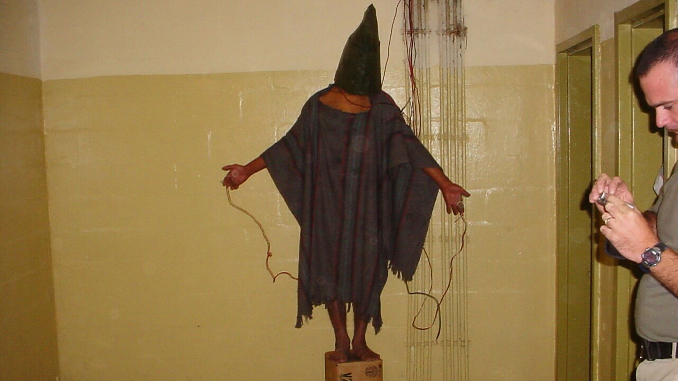
By AFP Staff
In late May, during confirmation hearings for newly appointed CIA head Gina Haspel, the Senate heard extensive testimony on the United States torture program carried out under the Bush administration following 9/11. The discussion revived that ugly time in recent U.S. history when military and intelligence officials engaged in despicable acts where innocent people, suspected terrorists, and captured foreign fighters were subjected to brutal treatment at the hands of U.S. citizens in secret prisons located in remote parts of the world.
Following the hearings, in a surprise move, Congress acted quickly to pass legislation by voice vote that tasked the Pentagon with investigating whether U.S. military or intelligence officials participated in torture in nearly a dozen prisons located in southern Yemen.
In 2016, the Associated Press exposed 20 secret prisons in southern Yemen that are run by U.S. ally the United Arab Emirates. AP estimated that several thousand Yemenis have been sent to these prisons where many undergo horrendous torture including rapes or being strapped to a “grill” and roasted over an open fire.
U.S. military officials, who spoke to AP anonymously, said they were aware of the torture in the prisons, but, so far, they said, their roles were simply to “participate in interrogations of detainees at locations in Yemen, provide questions for others to ask, and receive transcripts of interrogations from Emirati allies.”
The measure, sponsored by Reps. Ro Khanna (D-Calif.) and Barbara Lee (D-Calif.), specifically required the secretary of defense to initiate an investigation to see if any U.S. officials participated in torture in the Yemen prisons as well as to determine whether any U.S. officials who participated in interrogations in Yemen followed U.S. laws and policy. It was added to the 2019 defense authorization bill. It is not known, however, when Congress will take up the massive military spending legislation or whether the torture amendment will be included in the final funding legislation.
AFP will continue to monitor this important subject as the spending measure winds its way through Congress.




